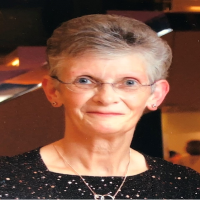To mark Time to Talk Day (February 2) we spoke with Catherine Ruane, who acted as a carer for her father and sister, who both lived with depression.
Catherine was part of NICE’s patient involvement group committee, as a lay member participant for our depression in adults: management and treatment guideline (NG222), published in June 2022, and more recently was involved in the independent advisory committee for a new draft quality standard (QS) for adults.
Q: How did you come to be part of NICE’s patient involvement group?
A: My family owe a huge debt of gratitude to the NHS for the treatment and care given to my sister and father during the many years that they lived with depression. Sadly, they have now both passed away from other illnesses.
As a carer, I saw first-hand many of the challenges depression can bring and gained some knowledge about what worked well and what could work better from the point of view of a person with depression and a carer. I wanted to give something back to the NHS and to find a way to use my experience to make a positive difference for patients and carers. I also felt that applying to be a NICE committee lay member on the guidelines was a fitting tribute to my sister and my father.
Q: What have been the biggest takeaways from your involvement, with the committee so far?
A: There’s been significant progress in science and medicine in the past 12 years. This guideline emphasises a greater amount of patient choice, taking greater account of the things that really matter to the patients and their carers. The QS also recommends that people who are considering taking, or stopping, antidepressants medication should talk with their healthcare professional about the benefits and risks. The healthcare professional should explain that withdrawal may take weeks or months to complete successfully, that it is usually necessary to reduce the dose in stages over time (called ‘tapering’) and that most people stop antidepressants successfully.
Q: How did you find being a lay committee member?
A: As a lay member on the depression guideline and quality standard, I have been heartened to see how hard everyone on the committee has worked to develop the guidelines for the benefit of people with depression and carers. Suggestions by lay members were taken seriously and are reflected in the new guidance. I have found it such a positive experience and I would encourage anyone with experience to apply for any relevant committee.
Q: What’s happening next in relation the draft quality standard?
A: A consultation on the draft quality standard is now open, and registered stakeholders can take part until Tuesday, 14 February on the NICE website.

Blog comments
There are no comments